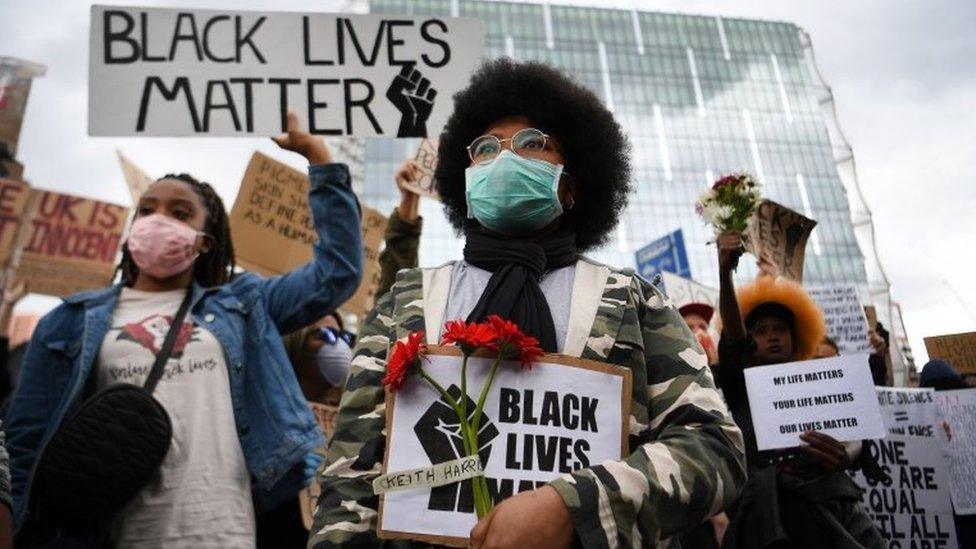Race report risks deepening distrust and division
- Published

When setting up the during the Black Lives Matter protests last summer, Boris Johnson said: "What I really want to do as prime minister is change the narrative, so we stop the sense of victimisation and discrimination."
But reaching a settled view on the question of racism in the UK was always going to be a struggle.
Critics were concerned by Mr Johnson's assertion that he wanted "to look very carefully at the real racism and discrimination that people face".
There was further unease among anti-racism groups at the reported involvement of Number 10 policy advisor Munira Mirza in setting up the commission, because she had previously written of how institutional racism was "a perception more than a reality".
When Theresa May created the Race Disparities Audit in 2017, Ms Mirza complained that "anti-racism is becoming weaponised across the political spectrum".
The appointment of Tony Sewell to lead the inquiry once again disappointed anti-racism activists.
One London-based organisation, Monitoring Group, considered seeking a judicial review to prevent his selection on the grounds that he had "a longstanding record of public statements rejecting or minimising" the impact of institutional racism in Britain.
The accusation that this report is the result of a hand-picked committee, designed to say what ministers wanted to hear, will have some traction, whatever the commission and the government insist about its independence.
The problem is not whether the report is right or wrong in its conclusions, nor whether the commission was impartial in its analysis. Indeed, the findings offer some important perspective on the complexities of race and social mobility.
The difficulty is that the process does not enjoy broad support as a truly independent exercise. As a result, rather than helping encourage consensus over this vexed issue, it may deepen distrust and division.
Related topics
- Published31 March 2021